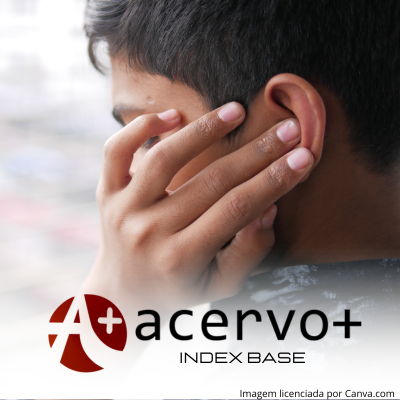Tratamentos atuais para tinnitus
##plugins.themes.bootstrap3.article.main##
Resumo
Objetivo: Explorar abordagens de tratamento para zumbido. Revisão bibliográfica: O zumbido no ouvido é a percepção de som sem uma fonte externa, impactando a saúde pública e correlacionando-se com a depressão. Medicamentos (por exemplo, antidepressivos tricíclicos, benzodiazepínicos, anticonvulsivantes, melatonina) mostram alguma eficácia na redução da gravidade do zumbido, mas sua eficácia é incerta. Terapias não farmacológicas, como a terapia cognitivo-comportamental (TCC) e a terapia de reabilitação do zumbido (TRZ), mostram promessa no manejo dos sintomas. A TCC aborda aspectos cognitivos e comportamentais, enquanto a TRZ combina terapia sonora e aconselhamento para habituação. Implantes cocleares e cirurgias de estapes também melhoram a percepção do zumbido. Técnicas de neuromodulação (por exemplo, estimulação magnética transcraniana, estimulação transcraniana por corrente contínua) estão sendo exploradas, mas pesquisas são necessárias para confirmar sua eficácia. Considerações finais: Opções de tratamento eficazes são cruciais para a qualidade de vida dos pacientes com zumbido no ouvido. Abordagens farmacológicas (por exemplo, antidepressivos, benzodiazepínicos, anticonvulsivantes) oferecem potencial, embora sua eficácia seja incerta. Tratamentos não farmacológicos, como TCC, TRZ, implante coclear, cirurgia de estapes e estimulação magnética transcraniana, mostram promessa na redução da gravidade do zumbido e na melhoria do bem-estar.
##plugins.themes.bootstrap3.article.details##
Copyright © | Todos os direitos reservados.
A revista detém os direitos autorais exclusivos de publicação deste artigo nos termos da lei 9610/98.
Reprodução parcial
É livre o uso de partes do texto, figuras e questionário do artigo, sendo obrigatória a citação dos autores e revista.
Reprodução total
É expressamente proibida, devendo ser autorizada pela revista.
Referências
2. BHATT JM, et al. Prevalence, Severity, Exposures, and Treatment Patterns of Tinnitus in the United States. Archives of Otolaryngology-head & Neck Surgery, 2016; 142: 959-965.
3. BILICI S, et al. Medium-term results of combined treatment with transcranial magnetic stimulation and antidepressant drug for chronic tinnitus. European Arch of Otorhinolaryngology, 2015; 272(2): 337-43.
4. BORGES ALF, et al. Cochlear implant and tinnitus-a meta-analysis. Brazilian Journal of Otorhinolaryngology, 2021; 87(3): 353-365.
5. CAVALCANTE AMG, et al. Degree of tinnitus improvement with stapes surgery - a review. Brazilian Journal of Otorhinolaryngology, 2018; 84(4): 514-518.
6. CHEN JJ, et al. Efficacy of pharmacologic treatment in tinnitus patients without specific or treatable origin: a network meta-analysis of randomised controlled trials. Eclinicalmedicine, 2021; 39: 101080.
7. DOI MY, et al. Effectiveness of acupuncture therapy as treatment for tinnitus: a randomized controlled trial. Brazilian Journal of Otorhinolaryngology, 2016; 82(4): 458-65.
8. EGGERMONT JJ e ROBERTS LE. The Neuroscience of tinnitus: understanding abnormal and normal auditory perception. Frontiers in Systems Neuroscience, 2012; 6: 1-4.
9. FULLER T, et al. Cognitive behavioural therapy for tinnitus (Review). Cochrane Database of Systematic Reviews, 2020.
10. HAN M, et al. Efficacy of tinnitus retraining therapy in the treatment of tinnitus: A meta-analysis and systematic review. American Journal of Otolaryngology-Head and Neck Medicine and Surgery, 2021; 42(6): 103151.
11. HUSAIN FT. Perception of, and Reaction to, Tinnitus: The Depression Factor. Otolaryngologic Clinics of North America, 2020; 53(4): 555-561.
12. KIM SH, et al. Review of Pharmacotherapy for Tinnitus. Healthcare, 2021; 9(6): 779.
13. LABREE B, et al. Determining the Effects of Transcranial Direct Current Stimulation on Tinnitus, Depression, and Anxiety: A Systematic Review. Brain Science, 2022; 12(4): 484.
14. LI J, et al. Clinical efficacy of cognitive behavioral therapy for chronic subjective tinnitus. American Journal of Otolaryngology, 2019; 40(2): 253-256.
15. LIMA DO, et al. Auditory attention in individuals with tinnitus. Brazilian Journal of Otorhinolaryngology, 2020; 86(4): 461-467.
16. MAHMOODI M, et al. Comparison of melatonin and sertraline therapies on tinnitus: a randomized clinical trial. International Journal of Preventive Medicine, 2017; 8(1): 61.
17. MCCORMACK A, et al. A systematic review of the reporting of tinnitus prevalence and severity. Hearing Research, 2016; 337: 70-79.
18. MOHSEN S, et al. The efficacy and safety of multiple sessions of multisite transcranial random noise stimulation in treating chronic tinnitus. Brazilian Journal of Otorhinolaryngology, 2019; 85(5): 628-635.
19. SANTOS ADHM, et al. The use of tDCS as a therapeutic option for tinnitus: a systematic review. Brazilian Journal of Otorhinolaryngology, 2018; 84(5): 653-659.
20. SCHERER RW e FORMBY C. Effect of Tinnitus Retraining Therapy vs Standard of Care on Tinnitus-Related Quality of Life: A Randomized Clinical Trial. JAMA Otorhinolaryngology Head & Neck Surgery, 2019; 145(7):597-608.
21. SHARGORODSKY J, et al. Prevalence and Characteristics of Tinnitus among US Adults. The American Journal of Medicine, 2010; 123(8): 711-718.
22. SWAIN SK. Impact of tinnitus on quality of life: a review. International Journal of Advances in Medicine, 2021; 8(7): 1006-1010.
23. TZOUNOPOLOUS T and HENTON A. Whats’s the buzz? The neuroscience and the treatment of tinnitus. Physiological Reviews, 2021; 101(4): 1609-1632.

